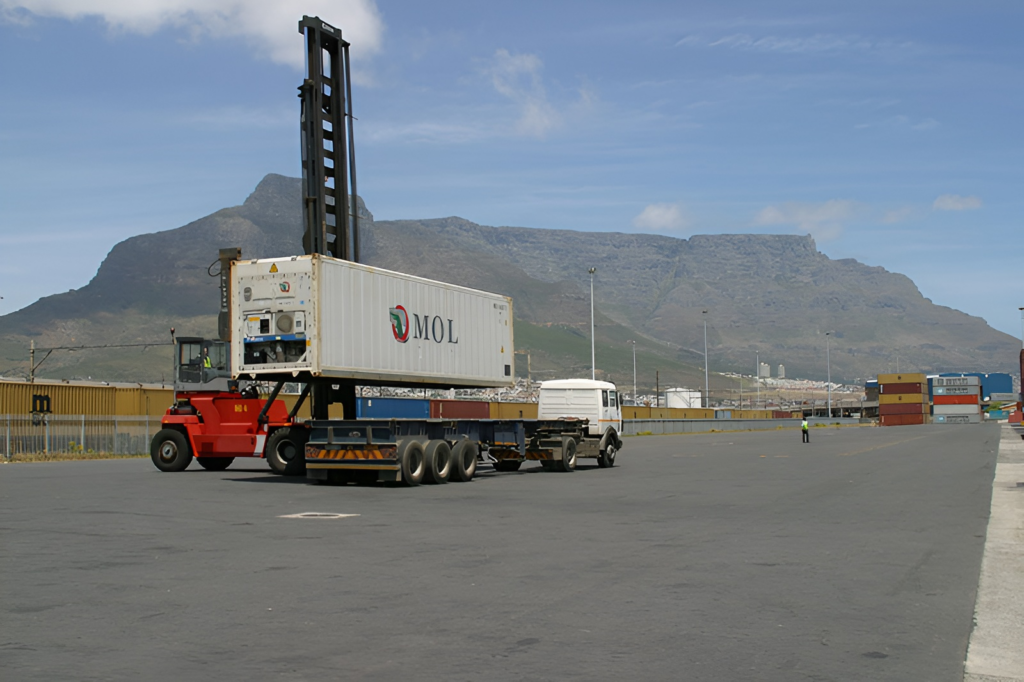Despite government’s intentions to grant long-term terminal concessions to private operators, one leading economist is warning that unless healthy competition is injected into the Ports system, we’ll simply be swapping old monopolies for new ones.
Ports are where the global economy meets the local road freight sector. For South Africa’s hauliers, delays at container terminals translate directly into truck downtime, contract backlogs, escalated driver and load risk, plus increased overall business costs. Yet despite the critical role our ports play in trade and investment, they remain among the least efficient in the world. That’s not just a nuisance – it’s an existential threat to our economy.
Dr Ryan Hawthorne, director at Acacia Economics, is raising a red flag. Speaking at the 43rd Southern African Transport Conference, he stated: “If we’re simply replacing public monopolies with private ones, we’re missing the opportunity to build a more competitive, efficient port system that truly serves the country’s interests.”
Is government ‘commitment to reform’ for real?
His concern highlights how the National Ports Authority (NPA), still legally part of Transnet, has awarded 25-year leases to single operators – often in joint ventures with Transnet Port Terminals itself.
“Monopolies tend to charge more, deliver less, and innovate slowly,” says Hawthorne. “We’re seeing a pattern of partial privatisation rather than real reform.”
Instead of unlocking benefits for port users, the current model risks reinforcing dominant positions with new stakeholders. “While private-sector participation is a welcome step, it risks becoming a missed opportunity if it doesn’t introduce genuine competition,” he warns.
Durban alone is expected to expand its container-handling capacity to more than 11 million TEUs. That, says Hawthorne, opens the door to a much more competitive model. “Ports of similar size internationally to Durban’s current capacity host four or more terminal operators competing on quality and cost,” he explains. “There’s no reason South Africa can’t follow suit.”
The legal foundation already exists. The Ports Act of 2005 calls for the structural separation of the NPA from Transnet and mandates transparent, competitive access to port infrastructure. But the critical step – making the NPA fully independent – has yet to happen. “If the NPA were truly independent,” says Hawthorne, “it would have an incentive to lease space to multiple terminal operators – not preserve the dominance of its sister company.”
In the short term, Hawthorne argues for practical reforms. “We need to complete the structural separation of the NPA from Transnet, as envisioned in the Ports Act. This would allow the NPA to operate independently and invest in expanding port capacity and enabling rival terminal operators, rather than protecting Transnet’s downstream interests,” he notes.
A call for competition assurances
He’s also calling on the Minister of Transport to issue a policy directive requiring competition assessments in all future concession processes. The new Transport Economic Regulator (TER), he says, should be empowered to review and, if necessary, amend monopoly concession agreements. “The Competition Commission could also be called upon to investigate exclusionary practices in port operations, including abuse of dominance or refusal to grant access to essential infrastructure,” he proposes.
Looking ahead, Hawthorne urges a return to inter-port rivalry, citing the era before the 1910 formation of South African Railways and Harbours when ports like Cape Town and Durban competed for shipping traffic.
“We need to stop thinking of South Africa’s ports as a single block,” he says. “Independent port authorities promoting competition within and between ports could drive the efficiency gains we desperately need.”
Hawthorne concludes: “The current model is broken. If we don’t introduce competition – both within and between our ports – we’ll continue to pay the price in lost trade, higher consumer prices and missed investment opportunities. We’ve got the capacity. What we need now is the courage to reform.”
FleetWatch agrees. True reform means shaking up entrenched monopolies, not reinforcing them. If we want faster, more reliable port operations, the solution isn’t just private investment – it’s proper competition. The trucking sector would certainly welcome the improved efficiencies that would spill over into their operations.
Click on photographs to enlarge





